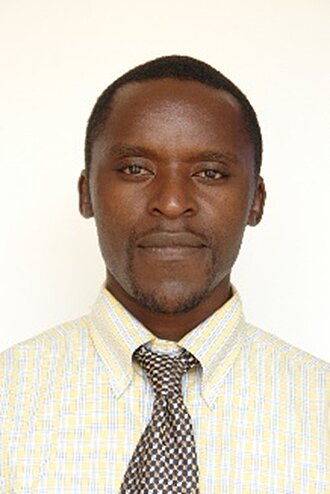Joseph Badokufa Bulugu

Joseph Badokufa Bulugu is a researcher and a PhD candidate at the Professorship for Adult Education at University of Duisburg-Essen. As a faculty member of the department of education foundations at St. Augustine University of Tanzania, Mwanza Tanzania, he is engaged in the teacher education program. He is a pioneer of the St. Augustine University of Tanzania Service-Learning program. Through this program tens of students and young adults are mentored through critical service-learning with a focus on global citizenship education, sustainability, employability, lifelong learning, and related current crosscutting issues.
His research experiences and interests include:
- philosophy of education
- learning theories
- inclusion; and global citizenship education
- democratic education, service-learning and lifelong learning
- school administration and management
Current publications:
Shreiber-Barsch S., Bulugu J.B., and Eble, L (2023). Encountering works by Nyerere and Freire: Exploring the connections between education for liberation and education for self-reliance in contemporary radical popular education. European Journal for Research on the Education and Learning of Adults, Vol.14, No. 1, 2023, pp.79-76
Fute, A., Wan, X., Oubibi, M., and Bulugu, J.B (2022). Adult Literacy Education and Reduction of Poverty in Tanzania: A Review of Policies and their Implementation. Journal of Education 2022, Vol. 0(0) 1-8
Bulugu, J. B and Kamugisha D. K (2023). The Mwanza Perspective: service-learning and community building. CLB Company Printers
Bulugu, J.B and Kamugisha D. K (2023) (Editors). Greandma’s speech. CLB Company Printers.
Bulugu, J.B and Kamugisha, D. K (2016). Principles of Education: Issues and perspectives. Mahelo Book center.
Bulugu, J.B and Kamugisha, D. K (2017). Managing and Developing Human Resource in Education: refocusing the traditional approach. Mahelo Book Center.
Bulugu, J.B and Herman, G (2017). A compendium of philosophy of education. Boatech Book Centre
CG1: Adult learning and education for all?! Issues of inclusion with regard to disability in the limelight
Co-Moderator: Prof. Silke Schreiber-Barsch
The ideology of social inclusion represents one of adult education’s leading leitmotifs, claiming to provide education for all—and especially for some across adult education’s histories worldwide. However, in particular since the mid-2000s, due to e.g. the UN Convention on the Rights of Persons with Disabilities (2006), inclusion as terminology and conceptual approach has increasingly been used to focus on the context of disability and impairment. This has strongly intensified the quest for a better accessibility to adult learning and education (ALE). Yet, what learning means in the context of disability/impairment, how it is framed in a nation-state architecture and in ALE institutional settings, and how it is experienced in a certain geographical place and at a given time are very likely to vary.
Taking this as a point of departure, the comparative group will elaborate commonalities and differences of accessibility to ALE. Disability/impairment will serve as the main lens of analysis; nonetheless, intersections with further categories will also be considered according to the multi-layered features of inclusive adult education (Schreiber-Barsch & Rule 2021, 553). Whereas students are welcomed to focus their analysis on the micro-level of accessibility to ALE, practitioners enrich the comparative group with their unique knowledge and experience with regard to the meso-level of institutional settings and strategies of accessibility.
The outcome foresees a deeper understanding of the buzzword inclusion, an extended knowledge on analysing the multi-dimensional concept of inclusive adult education through a comparative lens and a widened experience on strategies of institutional accessibility.


